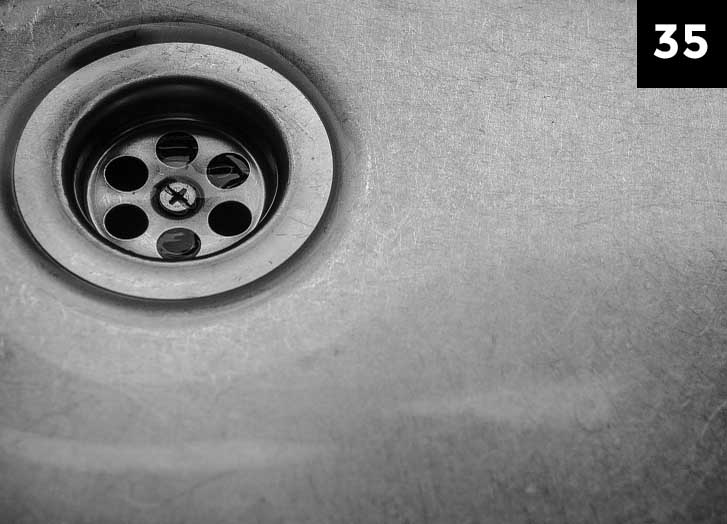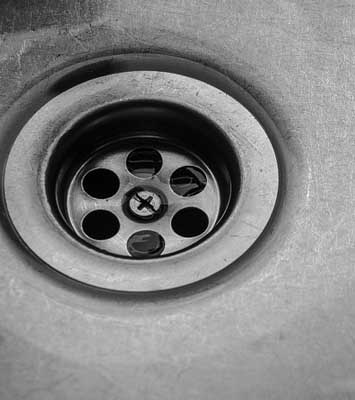GTHD
Part 35:
How to keep hotel drains in best condition
The problem
People act different on holiday, or when they’re far from home in a strange city. For some reason this extends to their hotel toilet, with people flushing items away they never would at home, including tampons, sanitary towels, wet wipes, large amounts of toilet paper, and even underwear.

Credit: Pixabay
The last thing new guests want to find in their room is a blocked toilet, and the first thing they will do after lodging a complaint at your front desk will be to give your hotel a one star review online.
Unblocking a toilet is time consuming and can cause mess itself, so it’s not practical or hygienic to keep a plunger at hand for cleaning staff to use. Prevention is the best cure for drainage problems, with the next best option having trusted, experienced drainage engineering support on call 24/7.
Preventing blockages from occurring
Make sure you have the right type of toilet
A standard, domestic ‘gravity flush’ toilet isn’t powerful enough to easily clear heavy blockages, so we recommend installing high pressure flush system toilets throughout your hotel. These work by having a pressure tank inside the cistern that works like a balloon, so instead of water just sitting in the cistern as it does with standard ‘gravity flush’ toilets, water fills the pressure tank and is held there. When you flush a pressure toilet the stored pressure and gravity combine for a powerful blast of water that helps clear blockages. To get the most from a pressure flush toilet its best to set it to full capacity so a full flush happens every time the chain is pulled.
Another advantage of a pressure flush toilet is that as water is kept inside the pressure tank no condensation forms on the outside of the cistern, instead of gravity flush toilets where condensation forms on the outside of the porcelain cistern. Condensation free cisterns makes bathrooms less damp, and look nicer and cleaner to guests.
Regular maintenance: preventing damage before it happens
At minimum hotel drains require a proper clean out and CCTV survey (where a waterproof CCTV camera is sent down a drain to inspect its condition) once per year. Keeping the soil stacks that serve the toilets clean should be a priority of any annual maintenance.
Personally I have attended a 20 floor apartment building where the soil stack had blocked at the ground floor. This meant that water from every toilet, shower, and sink being used from floors 1 to 20 was overflowing out of the ground floor apartment’s toilet and bath, as this was the only exit the water could find. In this case the ground floor apartment had been fully flooded with sewage, leaving a complete (and costly) refurbishment as the only option.
This was the classic case where neglecting regular maintenance and inspection resulted in serious damage and disruption, and incurred significant expenditure.
Making maintenance effective
To make the most out of regular maintenance, ensure that drainage engineers have sufficient access to carry out the required cleaning. For example, in order to properly clean soil stacks in buildings with multiple floors, engineers need to be able to take cleaning equipment to the top floor, where it can then be fed down the stack pipe, breaking off the scale build up on all sides of the pipe.
If your hotel doesn’t have roof access or access caps have not been fitted, then engineers will need to remove a toilet in order to reach the soil stack. This makes cleaning more difficult, and thus more expensive.
Keep your pipes short
If you’re installing toilets make sure the horizontal pipe serving the toilet is as short as possible before it reaches the soil stack. The larger the pipe, and the shorter it’s length, the less likely it is for blockages to form.
It is also worth avoiding using offset pan connectors if possible as they restrict the size of the pipe once it passes the offset, making it more likely that any large items that have been flushed get caught and cause blockages.
Ensuring the soil stack is the biggest reasonable size for the number of rooms it service will also prevent blockages as the system is not being forced to handle more waste than it is designed for.
Conclusion
Blocked drains can have serious consequences for any business, and especially for hotels, where the guest experience is so important. This is a classic ‘prevention is better than cure’ situation where careful planning combined with regular maintenance can save a lot of time and bother.
In summary, choose and install pressure flush toilets, keep your pipes short, and your soil stack the right size. Once you’ve done this make sure your drains are fully inspected, maintained, and cleaned at least once a year by professional drainage engineers.
About the author
Quick Clear Drainage provide drain unblocking services in and around London. We also provide CCTV and drain jetting services for hotels, commercial and residential properties.





